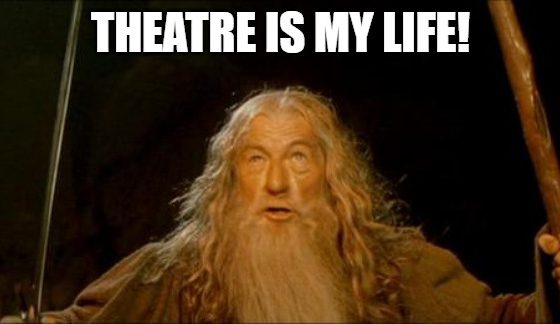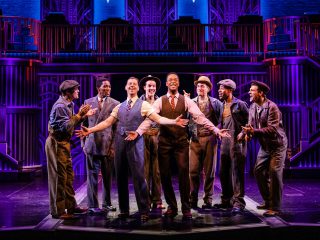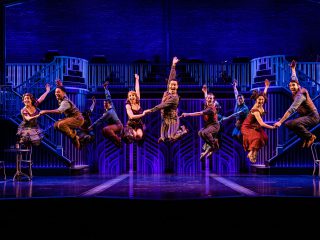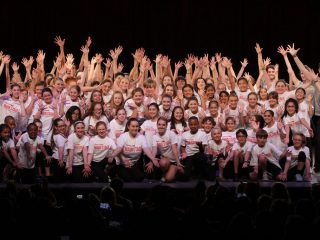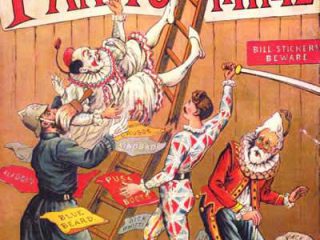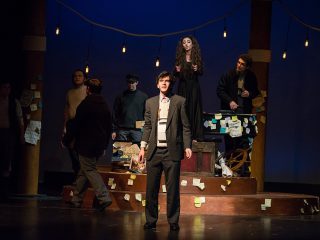“Oh my God, I love that show!” Nothing brings two people together more than the mutual love of a piece of theatre. Yes, celebrities have fans, specific performers have fans, even some theatre companies have fans. But there is something unique, binding, and passionate about fans of particular shows. Today we are going to explore musical theatre fandoms in all their glory.
What is a fandom? What separates a fandom from, say, just a bunch of people who happen to like a specific show? It’s a question of engagement. It’s not enough to have simply seen the show. It’s not enough to be familiar with the cast recording. It’s not enough to have a passing knowledge of the behind-the-scenes story of the show’s creation. To be a part of a fandom one must be legitimately obsessed with the musical in question. One must love it so much that one needs a community in which to collectively bask in the show’s genius. One must need to talk about it, dissect it, analyze it, argue about it. To be in a fandom is to be in love.

Historically, fandoms have often been made up primarily of young people but they are by no means limited to the youths. Love can come at any age. There is no exact science as to which shows will develop an avid fan following (if there was, theatre producers would have hacked it long ago). Fandoms come in many shapes and sizes: big, small, loud, secretive, boisterous, protective, cuddly, vengeful. Not all popular shows have a cult following. Some shows are simply successful, full stop. But a select group of musicals have inspired devout groups of followers, subcultures of acolytes.
The original fandom congregation spot was the stage door. Here groupies could meet up and chat while they waited to greet the actors after the show. Fans could swap stories, “repeat offenders” could compare (and compete with) how many times they had seen a particular production. But soon the world of fandom would forever be changed with the advent and spread of the internet.
Social media provided a new platform for superfans to connect, share opinions, and tell stories. Fans had a cornucopia of new ways to engage with shows: from fan art to tributes, from sing-alongs to parodies, from music videos to YouTube covers. Fandoms paint in many different colors.
Rent set the standard for passionate devotees. It spoke to people in a new and direct way. Many later musicals would attempt to duplicate Rent’s success with the young people. Spring Awakening was one such show. Its fandom sometimes calls itself “The Guilty Ones” after a lyric in the show. (Sidenote: many fandoms have clever names: Wicked has its “Wickedites”, The Phantom of the Opera has its “Phans”, and Hedwig and the Angry Inch has its “Hed-heads”. There are many, many others)
The musical Newsies capitalized on the millennial fandom of the beloved original movie, leveraging that nostalgic devotion into support for the Broadway musical adaptation (its fans are called “Fansies” – simple and effective). Another modern show to reach the upper echelon of fandom-hood is Dear Evan Hanson which managed to connect with its fans on a deep, personal, emotional level; the show’s advertising campaign capitalized on its social media love, to great success.
Be More Chill is an interesting example. The show started out small with a limited regional run at New Jersey’s Two River theatre. The show went on to basically ride its fandom’s enthusiasm all the way to Broadway. Be More Chill’s extremely vocal and passionate fanbase created a wave of engagement, conversation, and content (such as tributes and fan art). That fan-initiated discourse begat more awareness, more awareness begat more fan discourse, which in tern begat more awareness, and before you can say “grateful producers” that popularity carried Be More Chill all the way to the Lyceum Theatre on the Great White Way.
Beetlejuice is another fascinating case. When the musical, based on the 1988 cult favorite Tim Burton film, first opened on Broadway at the Winter Garden Theatre it received mixed to negative reviews. Audiences were lukewarm and advance sales didn’t look great. The Shubert Organization, which manages the Winter Garden, gave Beetlejuice an ultimatum to vacate the theatre and lined up another show to take its place. But then a curious thing happened: the fandom flexed its muscle! The Beetlejuice loyalists (and they are many … and young … and super active on social) rose up. Beetlejuice’s popularity, especially among teens, started to grow. The show saw a massive bump in ticket sales, a bonus that can largely be traced back to Instagram, Tumblr, and TikTok. Beetlejuice became a surprise, late-blooming hit. Now the show is actively trying to transfer to a different theatre so it can comfortably ride out the success its fandom has wrought.
This list of fandoms is by no means exhaustive; many contemporary shows have fostered devout followings. Even some older niche shows have small but vocal fandoms (Falsettos, anyone?). 2016 saw the introduction of Broadwaycon, a whole expo dedicated to musical theatre fandoms (the geeking out was real; the cosplay was intense). Savvy producers may try to use fandoms to boost their ticket sales but fandoms by and large will not be pandered to or artificially influenced. They are far too organic and far too human to be manipulated or contained. Modern fandoms are uprooting the traditional role of an audience member (passive, sedentary, inactive) and reinventing it into a new identity (engaged, outspoken, unapologetically dramatic). Fandoms take part in a form of active spectatorship, participating in a lively living conversation with their beloved shows. These fans are theatre’s future. They are our advocates and supporters, our friendly warriors. These theatrical Deadheads will be leading the charge in the years to come, keeping the flame of the theatre industry alive with their love. Mock them at your peril. The state of the fandom is strong.

